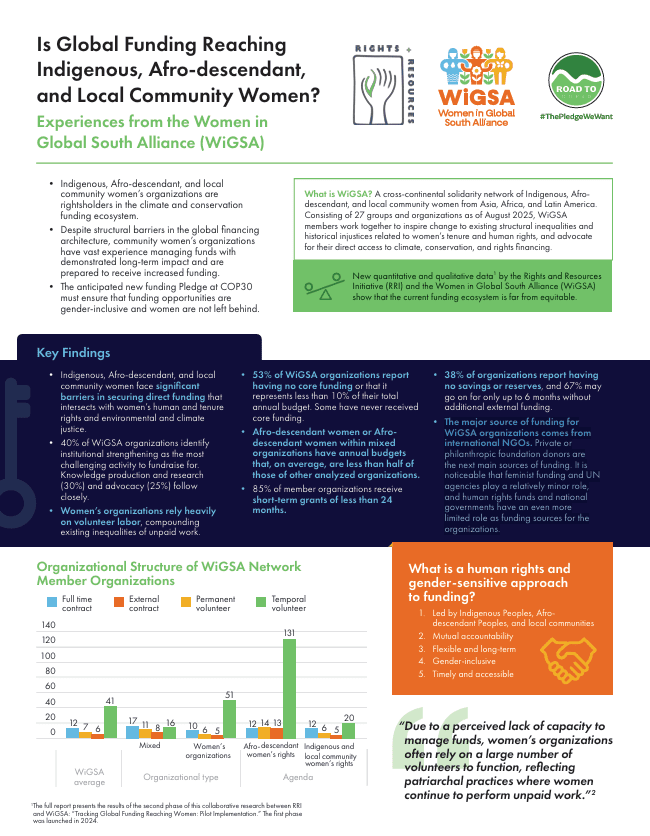Date: August 27, 2025
In 2021, the UNFCCC CoP26 conference produced the Forest Tenure Pledge. It was a historic funding commitment to support Indigenous Peoples’ and local communities’ efforts and roles in preventing deforestation and engaging in climate and conservation efforts. Yet what remains unclear is how Indigenous, Afro-descendant, and local community women have benefited directly from the Pledge.
The current lack of gender disaggregated data in international donor reports makes it difficult to track what, if any, global funding is reaching women’s organizations. Women are key actors in climate change and conservation action, traditional knowledge keepers and transmitters, food security and sovereignty caregivers, and have developed incredible resilience in environmental crises; however, they continue to be underrepresented and underfunded. Ensuring direct funding for women’s organizations and groups can transform the gender-based inequalities that have historically denied women their rights and locked them out of critical decision-making at the territorial, national, and international levels.
For this analysis, RRI collaborated with the Women in Global South Alliance (WiGSA) to analyze the level and types of funding provided to WiGSA network members. The preliminary analysis was released in 2024, and showed that investments in gender equality are on the decline, and Indigenous and Afro-descendant women remain severely underfunded. This new report presents the results of the second phase of this collaborative research: “Tracking Global Funding Reaching Women: Pilot Implementation,” which aims to identify and analyze the structural obstacles Indigenous, Afro-descendant, and local community women face in accessing funding. The preliminary findings were published in 2024.
As COP30 approaches and a new funding Pledge is imminent, new data shows governments and donors that they must recognize women as crucial rightsholders in climate and conservation action. The new Pledge must concretely include a gender-responsive perspective to prevent women’s rights from being left behind in financial commitments.
https://doi.org/10.53892/TGZI8889


